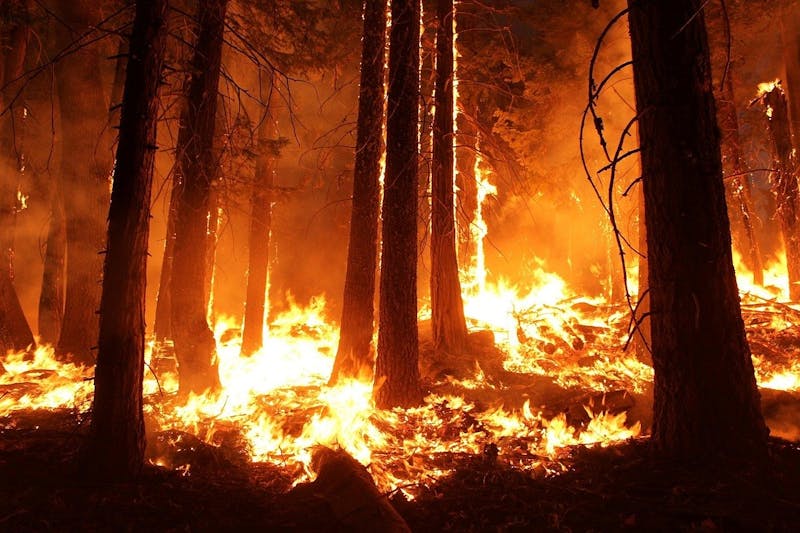
More than 1,200 arson offenses were reported to law enforcement agencies in the state of Florida in 2018. Arson is a serious crime, which is why authorities thoroughly investigate every reported offense. But not every fire is arson, and unfortunately, many people are wrongfully accused of committing this crime.
What constitutes arson in this state? Can you be convicted of arson for accidentally starting a fire in Florida? How can a Tampa criminal defense attorney help you fight your arson charges? Keep reading to learn the answers to these questions and more.
What is Arson in Florida?
The law in Florida recognizes several types of arson offenses: first degree arson, second degree arson, and arson resulting in injury.

First degree arson is defined as the act of intentionally starting a fire or starting a fire while committing a felony crime that damages:
- A dwelling, such as a home, townhouse, or apartment building, regardless of whether or not the dwelling is occupied at the time; or
- Any property that is typically occupied, such as a hospital, school, retail store, or church; or
- Any other type of property that the defendant knew or had reason to believe was occupied at the time the crime was committed.
First degree arson is a first degree felony, which is punishable by up to 30 years in prison as well as thousands of dollars in fines.
Second degree arson is defined as the act of intentionally starting a fire or starting a fire while committing a felony that damages any type of property that covered in the definition of first degree arson. In Florida, this degree of arson is a second degree felony. If you are convicted of second degree arson, you could face up to 15 years in prison.
As its name suggests, arson resulting in injury is defined as the act of committing arson that injures another person. If the victim suffers bodily injury, this crime is a first degree misdemeanor, which is punishable by up to one year in jail. But if the victim suffers serious bodily injury, permanent disability, or disfigurement, this crime is a second degree felony, which is punishable by up to 15 years in prison.
Arson resulting in injury charges can be filed on their own or in addition to first degree or second degree arson charges. In other words, it is possible to only get charged and convicted of arson resulting in injury. But it’s also possible to be charged and convicted with both arson resulting in injury and either first degree or second degree arson.
Can You Be Convicted of Arson For Accidentally Starting A Fire?
Many people who accidentally start fires are charged with arson in the state of Florida. But is an accidental fire actually considered arson?
The law states that a person commits arson when they either “willfully and unlawfully or while in the commission of any felony” cause property damage by fire or explosion. To put it simply, this means a fire that causes property damage is only considered arson if it was intentionally started or started while the accused was committing another felony crime.

If you accidentally start a fire that causes property damage while committing another felony crime, you could still face arson charges even though you did not intentionally start the fire. But if you accidentally start a fire that causes property damage and you were not committing another felony crime, this is not considered arson.
In fact, in many arson cases, the outcome hinges on whether or not the state is able to prove that the fire was started willfully and unlawfully. If they cannot prove that the defendant had the intent to start the fire, the defendant cannot be convicted of arson.
How Can You Prove A Fire Was Accidental?
If you have been charged with arson, it’s important to discuss your case with an attorney to determine the best way to fight your charges. Your attorney may believe that the best way to beat your charges is to prove that the fire was started accidentally. But how can you prove this?
The state will include a fire investigator’s findings in their case against you. Fire investigators gather evidence from the scene of the crime to determine how the fire started and spread. If the state’s investigator believes the fire was intentionally started, this opinion will be used as evidence against you.

Your attorney may need to hire a private fire investigator to examine the evidence and the scene of the crime. The private fire investigator may come to a different conclusion after concluding their investigation. For example, the private fire investigator may determine that the fire occurred as a result of electrical issues or faulty wiring. If the investigator concludes that the fire was not intentionally started, this evidence can be presented in court as part of your defense strategy.
The private fire investigator could also identify weaknesses or errors in the state’s evidence. For example, the private fire investigator could point out flaws in the way that the state’s investigation of the crime scene was conducted. This testimony could weaken the state’s case against you and make the jury question the reliability of the state’s evidence.
Book A No-Cost Consultation With Our Criminal Defense Attorneys Today
Have you been accused of committing arson in the greater Tampa Bay area? If so, it’s in your best interest to seek legal representation from the skilled criminal defense attorneys at Carlson Meissner Hart & Hayslett as soon as possible. Our attorneys have over 125 years of combined legal experience representing the accused. We are committed to helping our clients protect their rights, fight for their freedom, and reach the best possible outcome in their case.
Don’t face arson charges alone—turn to our team for help. Call our law firm now to schedule a free consultation regarding your arson case.

